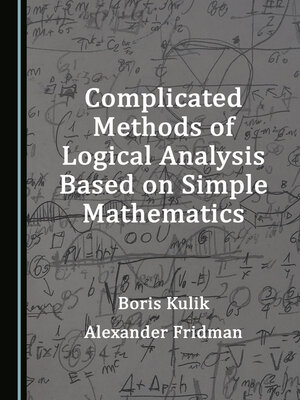
Sign up to save your library
With an OverDrive account, you can save your favorite libraries for at-a-glance information about availability. Find out more about OverDrive accounts.
Find this title in Libby, the library reading app by OverDrive.



Search for a digital library with this title
Title found at these libraries:
| Library Name | Distance |
|---|---|
| Loading... |
Those who want to understand logic, if they manage to pass at least an initial, though far from simple, modern course of study, eventually conclude that practically logic consists in formulating premises and a taken-from-nowhere assertion in an incomprehensible language and then proving or disproving cause-consequence links between them. Conversely, many topical tasks of logical analysis, such as forming and testing hypotheses, inferring consequences with predefined properties, and searching for, and analysis of, logical errors and inconsistencies in reasoning, among others, are outside the scope of this discourse. They are scattered haphazardly in works on theory of argumentation, non-classical logics, and artificial intelligence.This book demonstrates the capabilities of two relatively simple mathematical systems developed by the authors, namely E-structures and n-tuple algebra, which allow the modelling of various types of reasoning and solve the above and some other tasks of logical analysis.







